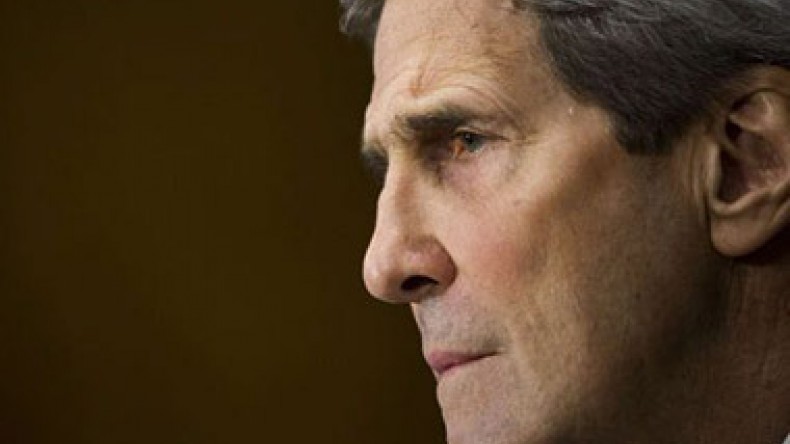
‘Kerry statements, political posturing’
Press TV has interviewed Stewart Stogel, UN correspondent from Newsmax magazine from New York City, to discuss Iran nuclear talks.
Press TV: Stewart Stogel what do you think? I mean we are looking at the statements made there by Iran’s leader, at the same time three rounds of talks, the third one concluded in Vienna; each and every time we are almost looking at an identical type schedule of two days it is ending, in between you have some technical-level talks that have taken place almost without any complications.
Of course we do not know about the fine details that are being discussed behind the closed doors, and of course it is not a deal until the dotted line is signed.
How do you find the pace of these talks so far moving in the way that it has?
Stogel: Well, it is not surprising. The Americans want to proceed slowly and carefully to make sure that they are not, shall we say, hoodwinked by the Iranian negotiators.
So the pace is slow but it seems to be going in the right direction. It may not be going at the proper speed but I think that speed is the least of their problems at this particular point.
I think what is more important is that we are moving into an American political election year, we have the midterm congressional elections and you are going to see the Obama administration take a much harder line to prevent them from losing votes in both the Senate as well as in the House representative coming in November, so I think you are seeing a harder public line taken by the Americans.
Press TV: Stewart Stogel what is confusing here, I mean this is a deduction that I am making with this third round of talks taking place and of course with that landmark Geneva Accord that took place back in November, I mean is there really room for, for example a US official to come out and say that Iran is under some covert nuclear weaponisation program, for statements to have been thrown when these talks are so technical in nature and now for them for these talks to progress to the point that they have, some US official for example, saying this because of the midterm elections? It just does not make sense in the big picture of things.
Stogel: Well, it is political posturing by John Kerry, and let us be honest, if you took John Kerry’s words at face value that Tehran was about two or two and a half months away from producing a nuclear weapon, I would eventually say that the Israeli jets were already be taken to the air on their way to Tehran as we speak.
The fact that Israel has been quiet and you do not see any move by the Israeli air force; makes me wonder as to what exactly John Kerry was ... in making such statements.
Press TV: Stewart Stogel what do you think about what Moscow has said and this of course is a reflection of or perhaps one of the fall outs from the crisis in Ukraine, when Sergey Ryabkov, Russia’s chief negotiator came out last month firing warning shots that Moscow might take the path of countermeasures on Iran if pushed too far. However on Tuesday he sounded a little more conciliatory when he said that it would not be wise to turn into a bargaining chip.
Do you think that this case might become a possibility?
Stogel: It is very possible. I know Lavrov for almost 20 years and he once told me face to face that he is well aware that the United States is the only remaining superpower in the world but “We do not have to be hit over the head with a sledgehammer everyday.”
So I think what you are seeing from Lavrov these days whether it is Ukraine or whether it is Iran, is political posturing because they know that if push comes to shove, the Obama administration is likely to have its way. They do not want to admit that publically but privately that is what they are saying.
Press TV: Another recent development Stewart Stogel and I am bringing this up because they may throw some kind of wedge, based on some analysts, and that is the issue regarding Iran’s appointment of its new UN ambassador, of which Washington has come out and pretty much said it is not viable, of which Iran has said that this is our option and therefore the US has to deal with it.
Why is the US taking a swipe at Iran regarding this issue? We know allegedly because he has been linked to the 1979 American embassy hostage crisis.
Stogel: It is local political posturing. The fact of the matter is that Iran has a right to name whoever it wants to be its UN ambassador.
The bottom-line to it is the Iranians will name whoever they want. Javad Zarif is well familiar with the interworkings of the United Nations; he would not have named this particular individual to be the next Iranian ambassador to the UN if he did not think they would not go through.
It will go through, the Americans will scream and yell, but it will go through.
Newsfeed
Videos






























